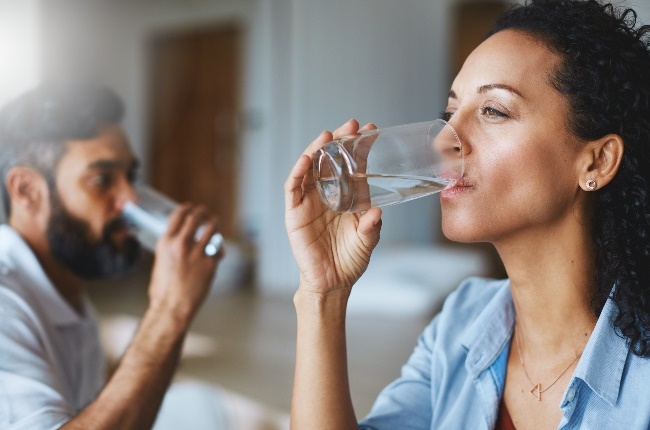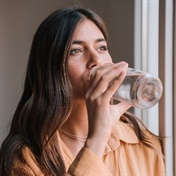
More than half of your body mass is made up of water so it's no surprise that you need it to survive. If you stopped eating and drinking, the lack of water would affect your health far more seriously than the lack of food.
As we know, water is lost from the body when we pass urine and sweat, but there are also other ways and we need to replace the fluids through our diets or take supplementary measures.
Many people don’t take in enough fluids and as a result may become mildly dehydrated, causing symptoms such as headaches, tiredness and loss of concentration. Severe dehydration results in more serious health problems, such as kidney stones.
While you do get some water from the food you eat, especially fruit and vegetables, it's beverages that are your main source. Water is the main ingredient in all drinks – fizzy drinks are about 65 percent water and fruit juices are 90 percent water, but plain, good ol’ water does the trick.
Different drinks and their benefits:
Tap water
This is the cheapest and easiest way of hydrating your body. You need to consume at least one glass (250 ml) for every 10 kg of body weight, so try to ensure you and your family get the recommended daily dose, especially when sick.
Oral Rehydration Therapy
The process is not as intense as the name sounds – but the effects of dehydration could be. A simple solution of oral rehydration salts could help replace what the body has lost, especially when you lose a lot of fluids due to illness or excessive sweating when working out. You could also opt for ready-made oral rehydration supplements which contain essential electrolytes and minerals that your body needs to rebuild and replace the fluid loss.
Bottled water
Mineral water comes from underground, flowing over rocks before it’s collected. But there are no confirmed extra health benefits to either this or spring water, which is collected and bottled where it comes out of the ground. Carbonated (fizzy) water can irritate the digestive system so stick to the still variety. Drink it when you’re out and can’t get a hold of tap water.
Drink it in moderation - don't go over the recommended limit of 14 units a week for women and 21 units for men.
Hot drinks
Tea, coffee and hot chocolate all contain caffeine, which is a stimulant that can upset blood sugar levels and sleep patterns. These drinks can also contribute to your kilojoule and fat intake, depending on how much sugar you put in them and whether you use full-cream or fat-free milk. Drink it in moderation – keep your intake of caffeine drinks down and try switching to healthy herbal teas such as rooibos.
Fruit choices
Fresh fruit juices don't only provide water but also contain nutrients that give you a health boost. The fresher the juice, the more beneficial it will be. When buying juice, look for those with the shortest shelf life as it means they contain fresh ingredients and no preservatives. Also look for those made from pure(not concentrated) fruit juices as they're less likely to contain added sugar. Drink it daily ? but one small glass (about 150ml) is enough. A serving of juice counts as one of your daily recommended I've portions of fruit and vegetables, and will boost your liquid intake.
Fizzy drinks
These are likely to contain sugar and/or artificial sweeteners, plus colourants and additives, which are bad for your health as they can cause fatigue, hyperactivity, insomnia and weight gain. Drink it occasionally? although it's best to avoid them and drink water instead when trying to boost fluid intake.
Herbal teas
These are healthy and don't contain caffeine. Rooibos tea is a great choice, and peppermint tea aids digestion. If you really struggle to give up your coffee, try weaning yourself slowly. Cut down to only a few cups a day for a week or two, then only one, then try to cut it out altogether.
Action plan
- If you think you’re mildly dehydrated, do the following right away:
- Replace caffeinated drinks with water and herbal teas.
- Keep a bottle of water with you at all times and sip it throughout the day.
- Eat plenty of fruit, vegetables and soup, which will add to your fluid intake.
- Drink before you feel thirsty. Thirst is an indication that you are already dehydrated.
- Consider oral rehydration therapy to restore electrolyte balance and aid in supporting bodily function.




 Publications
Publications
 Partners
Partners
















